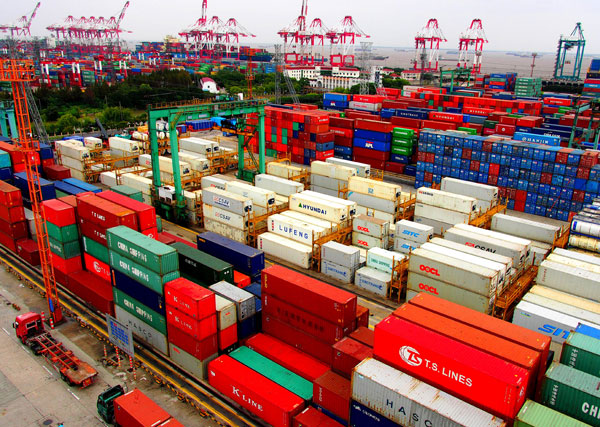Chinese-Kazakh deal, new success to realize Silk Road project

By Aynur Karimova
Beijing and Astana's agreement to establish a free trade zone in all major cities along the railway network, running from China to Europe via Kazakhstan is an important achievement towards the realization of the grand multibillion-dollar Silk Road project.
The relevant agreement was reached in late May at the international customs forum held in Xian, China, the Kazakh Telegraph Agency reported, citing local Chinese media.
"It coincides with our [Kazakhstan's] plans to increase transit through Kazakhstan to other countries. During the year, Western Europe-Western China international transit corridor will be completed as well. We expect that cargos of Chinese goods will be exported to Europe via this corridor. Of course, a lot will depend on the cooperation between the customs services of the two countries," Chairman of the State Revenue Committee of the Ministry of Finance of Kazakhstan, Daulet Ergozhin said.
Such an agreement shows Kazakhstan's desire to play an active role in the Silk Road project and to become a main transit country linking Far East countries to Europe, as well as China's active policy towards the implementation of this project, initiated by President Xi Jinping in 2013 with an aim to connect China with Europe and strengthen cooperation between Asia and Africa.
Experts believe that this agreement will help expand cooperation between enterprises of the two countries, aiming to deepen cooperation in the agricultural sector, while strengthening relations between the customs authorities and the business community.
Participants of the forum in Xian also called for the expansion of customs cooperation among all countries along the new Silk Road project.
Silk Road's revival
Centuries ago, it would take months for caravans of camels and horses from China to reach Europe across the sun-scorched steppes and deserts of Central Asia to exchange silk for medicines, perfumes and precious stones.
Now, thanks to the land route running from China to Europe through the Central Asian region, it takes just 15 days for trains carrying containers with electronic goods, construction materials and other cargo to cover the 10,800-kilometer route from Chongqing in southwest China to Duisburg in Germany's industrial Ruhr region.
The seriousness of China’s intentions to promote its Silk Road project has been underpinned by a series of visits by Xi Jinping to each Central Asian states, where he voiced his commitment to invest $40 billion into the region’s infrastructure.
An interactive map published in the Chinese state media outlet, Xinhua, shows Central Asia at the core of the proposed Silk Road project - which runs from the Khorgos economic zone on the Chinese-Kazakh border, through Kyrgyzstan and Tajikistan, before covering Uzbekistan and Iran.
China's active policy in Central Asia is desirable for the region's countries, in particular for Kazakhstan. A landlocked country located in the heart of Eurasia with no access to the world oceans, deserves to be part of this project.
With its advantageous geographic position, a crossroad in between Europe and Asia, Kazakhstan wants to attract the maximum amount of China-Europe trade via land route through its own territory.
Kazakhstan has already started works towards the realization of this idea. The Kazakh government has set a goal to implement projects aimed at the removal of all infrastructural restrictions in order to increase the country’s capabilities to offer competitive services and increase the volume of shipments.
The country is building a dry port and rail yard at Khorgos, in the desert on its eastern border with China. The country has formed 100 container trains from China’s Lianyungang Port to Central Asia this year.
Overall, the government plans to invest over $20 billion by 2020 in the development of the transport industry to become the main transit country between the booming Chinese market and Europe and to turn Kazakhstan into a logistics and transit hub in the Eurasian continent.
China's new policy demonstrates the willingness of this country's leadership to advance its vision of regional integration. Currently, the country's main foreign policy is focusing on neighborhood diplomacy. So, the Silk Road initiative is a milestone stage in Beijing's new foreign policy direction.
--
Aynur Karimova is AzerNews’ staff journalist, follow her on
Twitter: @Aynur_Karimova
Follow us on Twitter @AzerNewsAz
Here we are to serve you with news right now. It does not cost much, but worth your attention.
Choose to support open, independent, quality journalism and subscribe on a monthly basis.
By subscribing to our online newspaper, you can have full digital access to all news, analysis, and much more.
You can also follow AzerNEWS on Twitter @AzerNewsAz or Facebook @AzerNewsNewspaper
Thank you!
